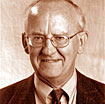Commentary on Psalm 98
The Christmas season always seems like a time to sing the good old songs.1
Each year I have sung the carols and even played them on a trombone alongside a Salvation Army bell ringer in order to help raise money for the poor. Most popular of all these carols is “Joy to the World,” which Isaac Watts based on the psalm for today, Psalm 98.
Psalm 98 calls for a new psalm! Since that call for something new is often sounded (Psalm 96:1, 33:3, 40:3; 144:9; 149:1; Isaiah 42:10) the point appears to be an important one. We could imagine that a good number of Old Testament people must have wanted to hang onto the “good old songs.” But there was also a group who must have said, “We need to hear something fresh, new, and contemporary, so that we can hold on to the young people.” And I did hear something new and fresh this year out on a football field in Harrisonburg, Virginia.
Some Background: The Enthronement Psalms
Psalm 98 is one of seven psalms in the Bible that were used at a festival to celebrate God as King: 47; 93; 95; 96; 97; 98; 99. Many of these psalms contain the cry, “The Lord is king” (see 93:1; 96:10; 97:1; 99:1). These enthronement psalms, as they are called, are not to be confused with royal psalms, which are associated with events in the life of the king (Psalms 2; 18; 20; 21; 45; 72; 89; 101; 110; 132; 144). To put it another way, in the enthronement psalms God is the king. In the royal psalms, the king is the king.
The heading “A Psalm” designates this as a musical piece suitable for use in worship. The psalm itself calls for instrumental accompaniment, with both stringed (verse 5) and brass instruments (verse 6). The psalm divides into three parts: Praise to the Lord because of mighty deeds in the past (verses 1-3), praise to the Lord the ruling King in the present (verses 4-6), and a call to nature also to praise the Lord who will come in the future to set things right in the world (verses 7-9).
What’s It All About? (verses 1-3)
The gathered people of God are invited to sing a new song because the Lord “has done marvelous things.” Biblical religion is a historical religion. This means that God has been acting through major events in the lives of God’s people, like the exodus, the wandering in the wilderness and the conquest of Canaan (psalms like 136). Note that the word translated “victory” in the NRSV comes up three times in this first section. The Hebrew word is yeshuah, which can have the sense as “rescue, salvation” as well as “victory.” It appears that this saving event was of such significance that the whole world knew about it (verse 3).
But the word can also be used as the basis for a proper name. The Old Testament name “Joshua” and the New Testament name “Jesus” are both derived from yeshuah. The Gospel of Matthew says that the angel said to Mary, “Y ou are to name him Jesus, for he will save his people from their sins” (Matthew 1:21). And salvation, yeshuah, is what Christmas is all about.
This section of the psalm also contains another of the great Old Testament words providing a reason for praising God in the present. Here the lyricist celebrates God’s “steadfast love” or hesed. This refers to God’s unmerited and faithful love for God’s people. Psalm 136 repeats the word as a refrain some 26 times: “for his steadfast love (hesed) endures forever.”
That’s the word that comes up in the New Testament as grace, or in Greek, agape.
A Planet Full of Praisers! (verses 4-6)
This section indicates who is called upon to praise the Lord for the Lord’s marvelous deeds. The psalmist thinks big. We ought to think of one of the photos of the whole earth taken from the Hubble space station. The writer calls for praises to go out — from the entire earth! Stringed instruments (the lyre) as well as wind instruments (trumpets, horns) are to be used.
Now for the new setting of an old Christmas song, as I alluded to earlier. On a cold Saturday evening in November 2012, my wife and I went to a football game at James Madison University in Harrisonburg, Virginia. The highlight of the game was the 500 piece marching band of which our granddaughter is a member. After selections by Shostakovich, Stravinsky and others, they closed with Tschesnekoff’s “Salvation is Created,” with all 500 musicians spread across the football field, sounding at full volume. The words, translated from the Russian, bring a marvelous Christmas message:
Salvation is created,
in midst of the earth
O God, our God, Alleluia
“This,” I thought, as I stood in that cold stadium, “is what the psalm and what Christmas is all about!”
Let Heaven and Nature Sing (verse 7-9)
This final section of the psalm again indicates who should join in praising the Lord. The circle of the writer’s imagination gets bigger and bigger. Here not only all the people on the planet are to praise God, but also the seas, the fish and the humpback whales (Psalm 8:8; 104:25). All are invited to give a cheer — for God! And the hills are alive with the sound of music, and applause for the coming of the Lord.
Aggiornamento
The Italians have a fine word indicating what Psalm 98 is all about. It was Pope John XXIII who called the church to the task of aggiornamento — new songs, a continued updating of old traditions to meet the needs and tastes of a new generation.
We are called to do no less. Christmas Day is a time to sing the old beloved carols — but also to throw in a few newer songs, maybe even a Christmas message from a 500-piece marching band! Who knows what aggiornamento could look like? We are promised that a great day is coming, when the Lord will come to straighten everything out in our tired, war-torn, and warming world. And all creatures, humans, hills, mountains and marching bands are invited to join in a mighty hallelujah!
Notes
1. This commentary was first published on this site on Dec. 25, 2012.


December 25, 2016